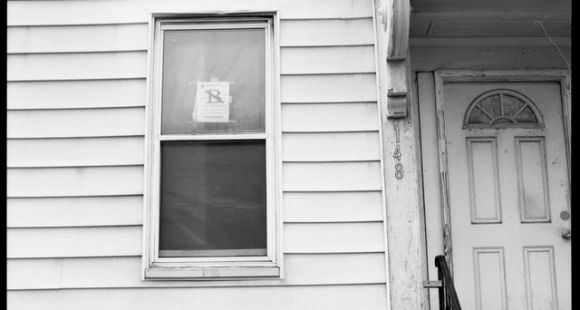In Utah, the statute of limitations period to enforce a “note payable at a definite time” is six years. That means any person seeking to enforce a deed of trust, mortgage, loan, promissory note, or other “note payable” must initiate an action or take other steps to enforce that note within “six years after the due date or dates stated in the note.” See Utah Code Ann. § 70A-3-118.
Further, the statute of limitations on the right to foreclose on property secured by a deed of trust is tied to the statute of limitations on the right to enforce the underlying debt secured by the deed of trust. See Deleeuw v. Nationstar Mortgage LLC, 2018 UT App 59, ¶¶ 12-13, 424 P.3d 1075. Therefore, a lender seeking to foreclose on a property secured by a trust deed must “(1) commence an action to foreclose the trust deed, or (2) file for record a notice of default under [Utah Code] Section 57-1-24” before the six-year statute of limitations period expires. See Utah Code Ann. § 57-1-34. If the party seeking foreclosure fails to do so, it waives (forfeits) its rights to enforce the trust deed through foreclosure.
In Daniels v. Deutsche Bank National Trust and Ocwen Loan Servicing LLC, 500 P.3d 891, 2021 UT App 105, the Utah Court of Appeals considered whether the six-year statute of limitations terminated Deutsche Bank’s right to foreclose on a home. In Daniels, the homeowners purchased a new home in Kamas, Utah with a $330,000 loan secured by a deed of trust. Due to financial hardship, the homeowners failed to make some of the monthly payments on the loan, and the trustee recorded a “Notice of Default & Election to Sell” on the home. This made the loan immediately due in full, but no further action was taken to foreclose. The homeowners filed for bankruptcy on September 9, 2009 to halt the foreclosure proceedings and their obligation to pay the debt was discharged in April 2010. Therefore, Ocwen could no longer enforce the debt personally against the homeowners.
Following the bankruptcy and in an attempt to keep their home, the homeowners asked Ocwen to modify the debt because of financial hardship. Ocwen initially did so on a trial basis. The homeowners made two of three payments, their last occurring on February 25, 2010. Thereafter, Ocwen terminated the trial payment plan and refused to respond to the homeowners’ repeated requests to permanently modify the loan. After a lengthy back-and-forth dispute among the homeowners, Ocwen, and Deutsche Bank, Deutsche Bank recorded a new notice of default on September 29, 2015 and recorded notice of a trustee’s foreclosure sale. Deutsche Bank published the notice on April 5, 2016 and scheduled the sale for May 6, 2016. The homeowners then filed a motion for summary judgment seeking, among other things, (1) a declaration that the six-year statute of limitations had run, thereby preventing foreclosure, and (2) quieting title in their favor.
Prior to the Court of Appeal’s review, the district court found that the statute of limitations tolled when the homeowners made their final payment on February 25, 2010, and that Deutsche Bank’s foreclosure action in April 2016 was therefore barred by the six-year statute of limitations. The Court of Appeals agreed that, under the statute, the limitations period began to run when the homeowners made their last payment and expired prior to the completion of the foreclosure sale. However, Deutsche Bank made several arguments that their foreclosure action was not time-barred, all of which the Court rejected.
First, Deutsche Bank argued the homeowners’ repeated requests to modify the loan acknowledged their debt obligations and thereby “re-started the limitations period each time” the homeowners sent them. The court declined to view these communications as “clear, distinct, direct, unqualified, and intentional” acknowledgements of the debt as required by Utah law. See Wells Fargo Bank, NA v. Temple View Invs., 2003 UT App 441, ¶ 9, 82 P.3d 655.
Second, Deutsche Bank claimed the statute of limitations period tolled or restarted by either (1) the September 2009 bankruptcy stay on the homeowners’ obligations or (2) the statutory hold on the foreclosure sale, which requires a three-month hold before a trustee may conduct a foreclosure sale after recording a notice of default. The Court rejected the first claim on the grounds that nothing under Utah law indicates that “banking” time tolled by a past action can then be applied to a future limitations period. Further, the Court found the second argument unconvincing because statutes of limitation do not apply to nonjudicial proceedings, such as trustee foreclosure sales.
Finally, Deutsche Bank claimed the Court should toll the statute of limitations under the equitable estoppel doctrine. The Court refused to do so because Deutsche Bank failed to prove the necessary elements for a claim of equitable estoppel. See Benge v. Cody Ekker Constr., 2019 UT App 164, ¶ 20, 451 P.3d 667.
In sum, because the Court determined the six-year statute of limitations period began when the homeowners made their final payment on February 25, 2010, and therefore terminated on February 25, 2016, Deutsche Bank forfeited its right to pursue foreclosure in April 2016. The Court affirmed the district court’s decision to quiet title in the homeowners’ favor and awarded attorney fees and costs to the homeowners.

